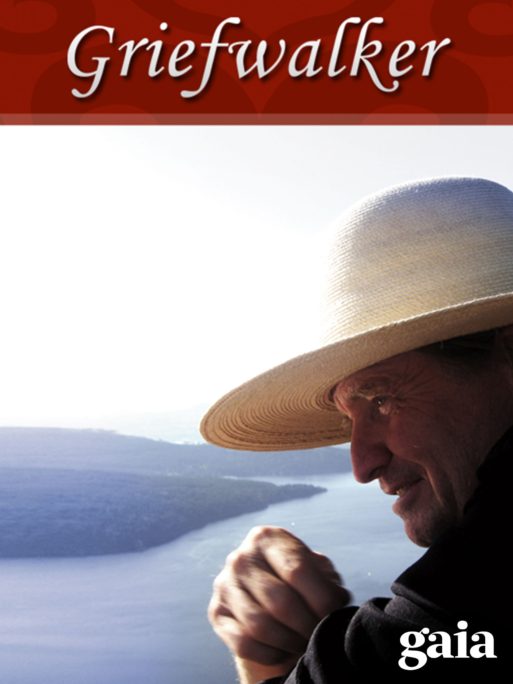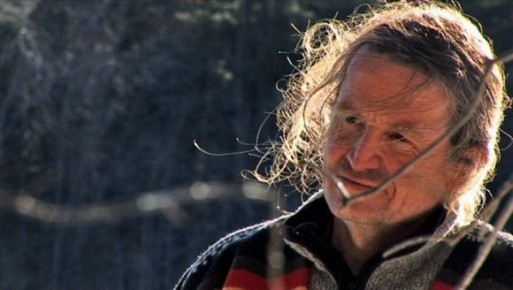 is a 2012 National Film Board of Canada documentary by director Tim Wilson. Filmed over a twelve-year period, the film chronicles Stephen Jenkinson’s work as a palliative care counselor, showcasing his perspectives on end-of-life care.
is a 2012 National Film Board of Canada documentary by director Tim Wilson. Filmed over a twelve-year period, the film chronicles Stephen Jenkinson’s work as a palliative care counselor, showcasing his perspectives on end-of-life care.
The heart of the film is the exchange between Jenkinson and the director—a series of thoughtful tête-à-têtes about what it means to live and die well with the aid of end-of-life counseling.
Jenkinson’s lifestyle is, according to Wilson, that of a hybrid “philosopher-woodsman-boatman-bard.” Naturally, some of Jenkinson’s best pontifications are born of the scenes spent paddling in his canoe. Intermittently, we are touched by personal accounts from a few of the people and families Jenkinson has worked with to help them “love their death.”
But what does it mean to love your death — or your grief? What is the difference between accepting and loving? And how can you obtain the latter?
According to Jenkinson, we can start to love our death by cultivating a good relationship with it. “Our recipe in [U.S.] culture,” he says, “is about not knowing you’re dying, because avoiding death means avoiding depression.” Consequentially, dying is reduced to news in our culture; something we receive reluctantly and with shock, even though we always knew it was impending. “Why should [dying] be news to everyone?” says Jenkinson, “Just the fact that someone has to tell you this shows that you have a bad relationship with yourself. Add in the fact that most people have never seen a dead body and, well, you end up transforming your own death into a rumor.”
Take Sandra, for example: a woman featured in the film with terminal cancer, who says she copes with her approaching death by “not thinking about it much” — even though her husband says it dominates every conversation they have. Would she like to know when she’s going to die? Jenkinson asks her. “Right or wrong,” she admits, growing uncomfortable, “I don’t really have to know.”
“We’re trained to love what’s loveable about a person,” he says,“[but] you don’t love anybody until you love their end.” Every relationship is born in tandem with its inevitable end for Jenkinson. And loving that end is, for him, just as important as loving its beginning. “You have to say,” he explains, “that yes — if life came from somewhere, it left a hole to be able to come to you. And that’s not sin. It’s not pain. But that hole yearns to be spoken to–fed.” In that way, he says, death is “maintenance, not punishment.”
“We’re trained to love what’s loveable about a person,” says Jenkinson,“[but] you don’t love anybody until you love their end.”
At the root of every character in the film is some degree of that fear and shame of death—even a sense indebtedness. “You’re life is part of a loop that stirs up an enormously grateful, indebted feeling,” says Jenkinson, “There’s nothing you can or should do about it, other than live knowing that that indebtedness exists.” He helps us to understand that there is inherent grief in being alive, but that doesn’t mean our life has to be rooted in a melancholic attitude.
For Jenkinson, the way to love your grief is to transform it into humility. Think of the things you appreciate in your life and then, he explains, move beyond that—be “grateful for things that exist which you will never see. Things you will never benefit from—but someone else will. Then you start to really see the big picture.”
“Find an object to let you know you are going to die,” he advises, challenging viewers to literally “wear that reality” of their inevitable death. Jenkinson chooses to wear a small pouch around his neck with a strand of buffalo hair to remind him of his mortality — and to normalize it. “Grief is not a feeling,” he says, “It’s what you do. It’s a skill. The twin of grief is the skill of being able to praise life. They are always very close at hand. They are there, side by side—the honored guests, toasting you.”
Watch the trailer:
Related Articles:
- What Is Palliative Care? An Interview with Dawn Gross
- How Can We Raise Awareness About Palliative Care? An Interview with Helen McNeal
- Trends in Palliative Care

 Griefwalker by Tim Wilson
Griefwalker by Tim Wilson



 Honoring Seniors, Caregivers: Inside the Vision of Carehaus
Honoring Seniors, Caregivers: Inside the Vision of Carehaus
 “In Case You Don’t Live Forever” by Ben Platt
“In Case You Don’t Live Forever” by Ben Platt
 Our Monthly Tip: Make an “In Case of Death” File to Ease Loved One’s Grief
Our Monthly Tip: Make an “In Case of Death” File to Ease Loved One’s Grief














